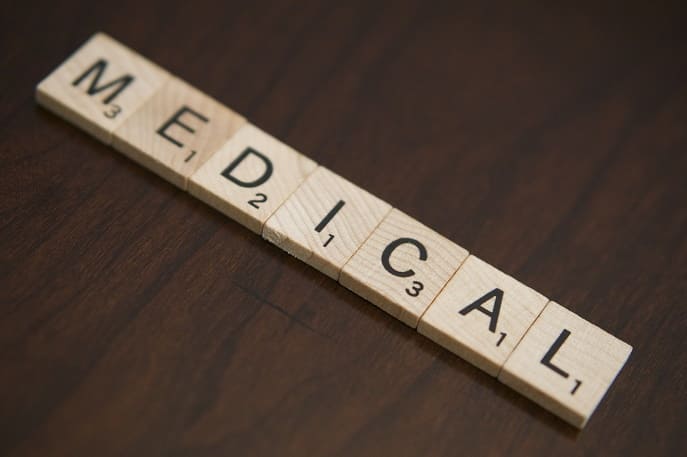The US Bureau of Labor Statistics projects 15% growth in the demand for medical billing and coding specialists between 2014 and 2024, making it one of the lucrative professions in the allied healthcare sector. The demand for billing and coding specialists has risen with the digitization of health records.
Students who aspire to build their career in the allied healthcare industry can choose to get trained in courses offered by recognized institutions. The medical billing and coding course provides theoretical and hands-on training to students on the areas mentioned below, to acquaint students with best practices that help them in the successful delivery of their professional duties.
1. Computer Proficiency
Operating a computer with ease is one of the prerequisites for becoming a medical billing and coding specialist. Medical coders are required to read notes and make computer entries. Thus, familiarity with computer technology helps them to work efficiently at the required pace.
Computer literacy, along with the knowledge of specific software programs, is delivered to the students during the training. Records of patients’ history are saved in computers and the information is converted using the codes and shared with respective stakeholders online. Billing and coding specialists must be able to save, access, and process all information on the computer system by ensuring safety of all the confidential data.
2. Medical Insurance Policies
Medical insurance is a significant part of the medical billing and coding process. The medical billing and coding specialist uses patient’s medical information to process the bill for the services provided. The bill is sent to the patient’s medical insurance provider to claim the payment. Upon receiving the payment, the balance amount, if any, is calculated by the billing specialist and sent to the patient for payment to the healthcare service provider.
Medical billing specialists are required to communicate with insurance companies on a regular basis to ensure timely payment, and solve and respond to queries that may arise during the process. During the course, students are trained on collection and submission of insurance claims. Detailed training on several health care policies and programs, in addition to personal injury claims, group health coverage, and government programs like Medicare and Medicaid is given to students.
3. Medical Terminology
Knowledge of medical terminologies is crucial for billing and coding specialists to grasp the information about the patient’s medical treatment and create medical records and bills. The study of medical terminologies helps specialists understand and identify the treatments and medical procedures. This information is of crucial importance in preparing the patient’s medical report and the bill for claiming payment from insurance companies.
During our Medical Billing & Coding Specialist Training in Connecticut, the students are prepared to study and comprehend the medical terminologies and their respective codes.
4. Medical Billing and Coding
Students are trained on managing office affairs and verifying insurance cards along with calculating payments and deductibles. They are taught to develop efficiency in calculating bills or claims, and ensure timely and accurate payments for the services rendered.
An important part of the billing and coding job is understanding the medical terminologies and the corresponding medical codes. The standard classification system of codes established by the WHO called the International Classification of Diseases (ICD) and the Current Procedural Terminology (CPT) developed by the American Medical Association are used to describe the diagnosis, treatment, and medical procedure used by the healthcare service provider to treat the patient. Students preparing to become coding specialists are required to gain proficiency in the codes that aid in streamlining the reporting procedure.
5. Electronic Health Records (EHR)
Digital records of the patient’s health information are maintained to make information available to the authorized stakeholders across multiple healthcare organizations in a secure manner, so that no information is lost or abused. Students are educated to create and maintain the patient’s electronic health record that includes the patient’s medical history, medication and treatment plans, dates of hospital visits, allergies, and a list of laboratory tests and results. Additionally, students are also taught to enter the physician’s workflow related to patient care and treatment into the electronic health record system.
6. Medical Laws and Ethics
It becomes imperative for every medical practitioner to know and understand his/her responsibilities and duties towards the profession, the patient, and the practice at large.
Medical laws have been established to provide legal and moral guidelines to practitioners for them to operate within by providing the best of their expertise to ailing patients. Laws also establish rules to safeguard patients’ health-related information and establish procedures for safe and secure transfer of data to authorized personnel.
Medical billing and coding course offers education and training on medical laws and ethics to help students perform to the best of their ability and knowledge.
Conclusion
The rising demand for healthcare professionals is good news for individuals who wish to pursue jobs that are credible and come with a high degree of job security. Effective planning about choosing a good institution to get trained with and getting certified creates several opportunities of employment with highly-established healthcare organizations.
Well-trained and certified professionals carry an edge over others as their skills are easily gauged through the credentials achieved. Interested in becoming a medical billing and coding specialist? Read our article on it!




